The Deputy Prime Minister stated clearly, "the disbursement of public investment capital is the responsibility of each person, there is no need to urge," "if legal regulations are overlapping and complicated, it cannot be done even if there is urging."

On the morning of November 15, at the meeting of Working Groups No. 4 and No. 7 on inspection, urging, removing difficulties and obstacles, and promoting disbursement of public investment capital in 2024, Deputy Prime Minister Ho Duc Phoc, Head of the two Working Groups, noted that it is necessary to focus on doing, doing quickly, doing strongly, but must do it firmly, sustainably, and ensure quality.
Tight investment management
The Deputy Prime Minister stated clearly, "the disbursement of public investment capital is the responsibility of each person, there is no need to urge," "if legal regulations are overlapping and complicated, it cannot be done even if there is urging."
With the requirements of the recent 10th Central Conference on how to promote the economy as quickly as possible, use resources most effectively, avoid resource stagnation, obstacles, and difficulties, as well as the direction of the General Secretary, we have entered a new era, an era of rising up and developing prosperity. The Government has proposed amending the laws: Law on Public Investment, Law on Planning, the Ministry of Finance has built 1 law amending 7 laws, the Ministry of Planning and Investment has been assigned to preside over 1 law amending 4 laws.
“We really hope that after the National Assembly votes to pass the law, it will be easier for us to implement the provisions of the law,” sharing this, the Deputy Prime Minister cited: The Law on Public Investment has many new amendments such as assigning local authorities to do it, and local authorities are responsible.
After the investment capital is submitted by ministries, branches and localities, the list will be handed over to the locality for decision and adjusted from one project to another, without having to submit it to higher levels, as long as it does not exceed the total capital allocated to the locality. The target program capital will also be renewed in that direction. This way, it will not take much time, the project will be completed soon and will be effective.

According to Deputy Prime Minister Ho Duc Phoc, unfinished projects will lead to many consequences: contractors will be weakened, unable to pay the volume, and the quality of the project will gradually decline. If the project involves technology, if the time is prolonged, the technology will become outdated, not meeting the requirements, and waste will be present.
Taking a specific example of the expressway project, the Deputy Prime Minister said that chasing quantity without strictly controlling quality, leading to subsidence and collapse, will have very serious consequences, such as the Da Nang-Quang Ngai expressway project invested by VEC, which had to "pay the price." When handing over the project to the locality, it must be carefully calculated.
“If you leave it to the consultants to do, if the road collapses, sinks, or breaks the next day, you will have to take responsibility. Therefore, you have to calculate from the design stage, what vehicles can use that road, and how much force it can bear?” The Deputy Prime Minister emphasized, at the same time requiring that we take into account a long-term vision to ensure the longevity of the project.
Requiring mountainous provinces to rebalance the total budget revenue, especially land use fees, to make correct commitments to the Government, the Deputy Prime Minister noted that if not correct, they must immediately hold a meeting with the People's Committee and People's Council, requesting the Government to arrange additional capital for the medium-term program so that the project can be effective, avoiding leaving it unfinished due to lack of capital, leading to failure to finalize, the lesson from the Viet Duc Hospital and Bach Mai Hospital 2 project in Ha Nam is an example.
“We must focus on speeding up the progress and managing it very well. We must balance the budget and revenue sources. We must not commit to work that later on no one will handle, which will be very tiring,” the Deputy Prime Minister emphasized.
The Head of the Working Group also noted that with only 45 days left until the end of 2024, the disbursement rate is very low, central ministries and branches only get 36.09%, localities get 52.19%. To disburse 95% of the capital as committed, great efforts are required, the volume must be worked day and night, and procedures must be timely.
We must focus on accelerating the disbursement of public investment capital from now until the end of the year, strictly manage investment, the most dangerous is violations in construction volume and quality, this is the cause of losses. In addition, we must focus on removing obstacles, ministries and branches must promptly respond to local requirements; determined to complete the volume before December 31, 2024.
The Deputy Prime Minister assigned specific tasks to the ministries, in which the Ministry of Planning and Investment considered the proposals of the provinces to adjust the total investment, investment procedures, transfer resources, remove obstacles in investment procedures, advise on the arrangement of additional capital for projects, to complete on schedule, promote efficiency, and soon put the project into handover and use. The Ministry of Finance resolved the ODA capital source, arranged capital, and adjusted investment capital when receiving comments from the Ministry of Planning and Investment.
Low disbursement rate
The report of the Ministry of Planning shows that the total state budget investment plan for 2024 assigned by the Prime Minister to 21 units (10 ministries, central agencies, 11 localities) under Working Group No. 4 is 47,236,241 billion VND (accounting for 6.9% of the total capital investment plan of the whole country).
Currently, only the Ministry of Finance has not yet allocated all the assigned capital plan with the remaining unallocated capital of VND 44,013 billion, due to incomplete investment procedures, accounting for 0.09% of the total capital investment plan of the units under Working Group No. 4 and accounting for 0.3% of the total unallocated capital of the whole country.

The disbursement rate for 10 months reached 59.8% of the plan assigned by the Prime Minister, higher than the national average (52.46%). Of which, 4 central agencies and 8 localities had disbursement rates higher than the national average; 5 ministries, central agencies and 3 localities had disbursement rates below the national average.
According to the report of the Ministry of Finance, the total state budget investment plan for 2024 assigned to 5 localities under Working Group No. 7 is 21,807,443 billion VND. By the time of reporting, 5 localities had allocated all assigned capital plans.
The detailed allocated capital of 5 localities: 26,113,333 billion VND, reaching 119.75% of the plan assigned by the Prime Minister. Basically, all localities allocated more than the plan assigned by the Prime Minister (due to the allocation of increased local budget).
By the end of October 2024, the total disbursed capital of 5 localities reached 48.36% of the plan (lower than the national average), of which 3 localities (Dak Lak 60.49%; Dak Nong 50.89%; Gia Lai 51.76%) had a disbursement rate higher than the national average, 2 localities (Kon Tum 42.93%, Lam Dong 38.37%) had a disbursement rate lower than the national average. The estimated disbursement for the whole year of 4/5 localities (Dak Lak, Gia Lai, Kon Tum, Lam Dong) all reached 95% or more, only Dak Nong province is expected to disburse only 92% (below 95%).
Many problems
The main difficulties and obstacles in disbursing public investment capital of units under the two Working Groups lie in legal regulations; investment preparation and site clearance; project implementation and implementation of national target programs.
The process and procedures for converting forest use purposes to other purposes according to the provisions of the Forestry Law are still complicated, time-consuming, do not create initiative for localities and affect the overall progress of project implementation. These are the obstacles of Dak Nong, Gia Lai and Kon Tum provinces.
A representative of Cao Bang province said that the local disbursement rate is low, up to now it has only reached 48.1%. The biggest difficulty is the disbursement of capital for the Dong Dang - Tra Linh expressway project, the capital is very large but the disbursement rate is still low. The reason is that prolonged rain and flash floods have affected the implementation progress. The province is speeding up the construction progress during the dry season and is committed to disbursing 95% of the capital by 2024.
Standing Vice Chairman of the People's Committee of Dien Bien province Pham Duc Toan informed that by the end of October 2024, the province's disbursement rate reached 58.4%. For a difficult province like Dien Bien, public investment is a very important resource in promoting socio-economic development in the area, the above disbursement rate has not met the requirements of the assigned tasks.
Mr. Pham Duc Toan stated the reasons such as the revenue from land use in 2024 is lower than the assigned estimate due to the general difficult situation, unfavorable weather conditions, the source of materials, especially sand, is very difficult, the unit price has increased sharply, the licensed supply does not meet the demand, affecting the construction process of projects in the final and key stages. Besides, there are subjective reasons such as the capacity, consulting and management work from investors to construction units also need to be rectified, recently the province has regularly organized meetings to remove difficulties and obstacles.
Among the localities with disbursement rates below the national average, Chairman of Lai Chau Provincial People's Committee Le Van Luong shared the difficulties in site clearance, construction materials, and lack of sand and gravel due to the Mineral Law, which have not yet been resolved. Revenue from land use is also very low, affecting disbursement results.
Also at the meeting, representatives of the Ministry of Finance, Planning and Investment, and Natural Resources and Environment responded to comments and recommendations from localities./.
Source




![[Photo] Students of Binh Minh Primary School enjoy the full moon festival, receiving the joys of childhood](https://vphoto.vietnam.vn/thumb/1200x675/vietnam/resource/IMAGE/2025/10/3/8cf8abef22fe4471be400a818912cb85)


![[Photo] Prime Minister Pham Minh Chinh chairs meeting to deploy overcoming consequences of storm No. 10](https://vphoto.vietnam.vn/thumb/1200x675/vietnam/resource/IMAGE/2025/10/3/544f420dcc844463898fcbef46247d16)
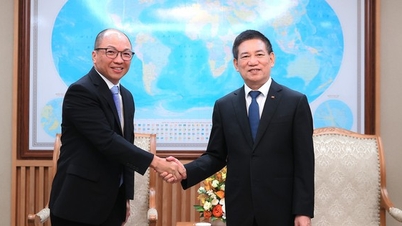

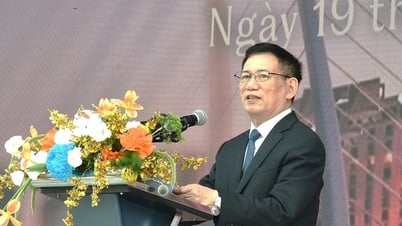
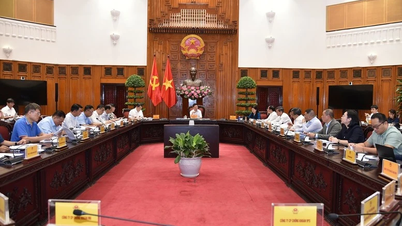

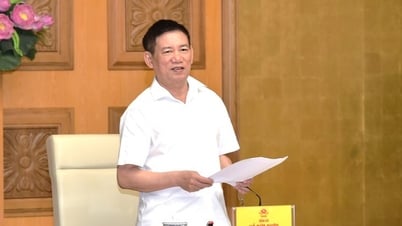
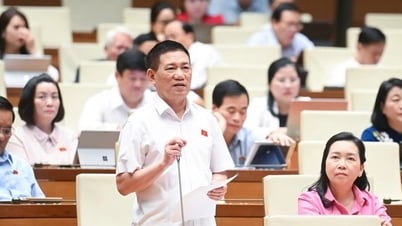

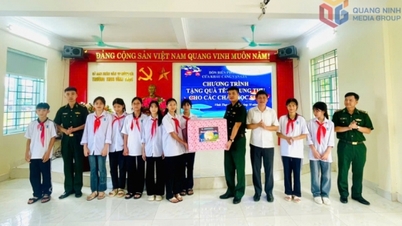




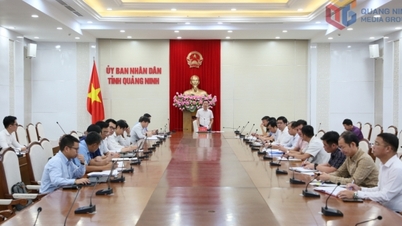
![G-DRAGON 2025 WORLD TOUR [Übermensch] - Global icon officially returns with the most anticipated tour in major cities](https://vphoto.vietnam.vn/thumb/402x226/vietnam/resource/IMAGE/2025/10/3/ec141c4a6dc449c7a4a7c18510f1fa1a)






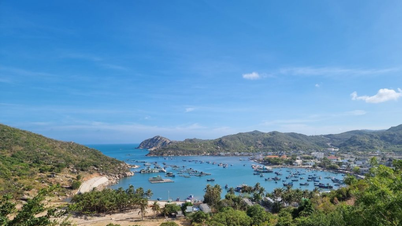


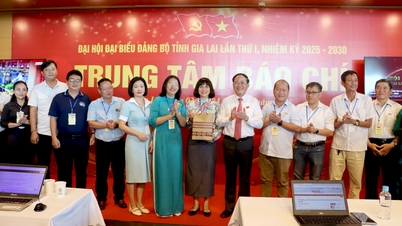
















































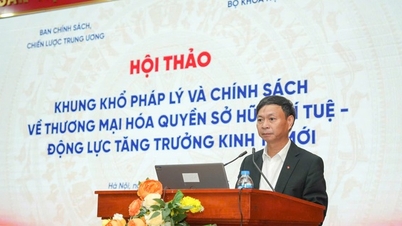


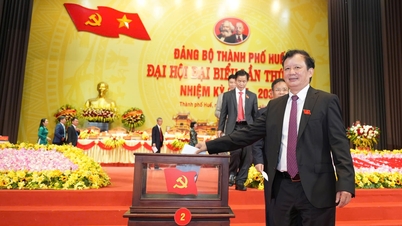


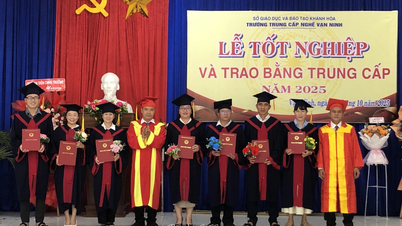



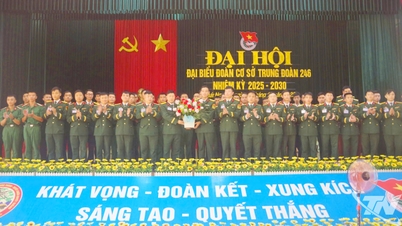













Comment (0)